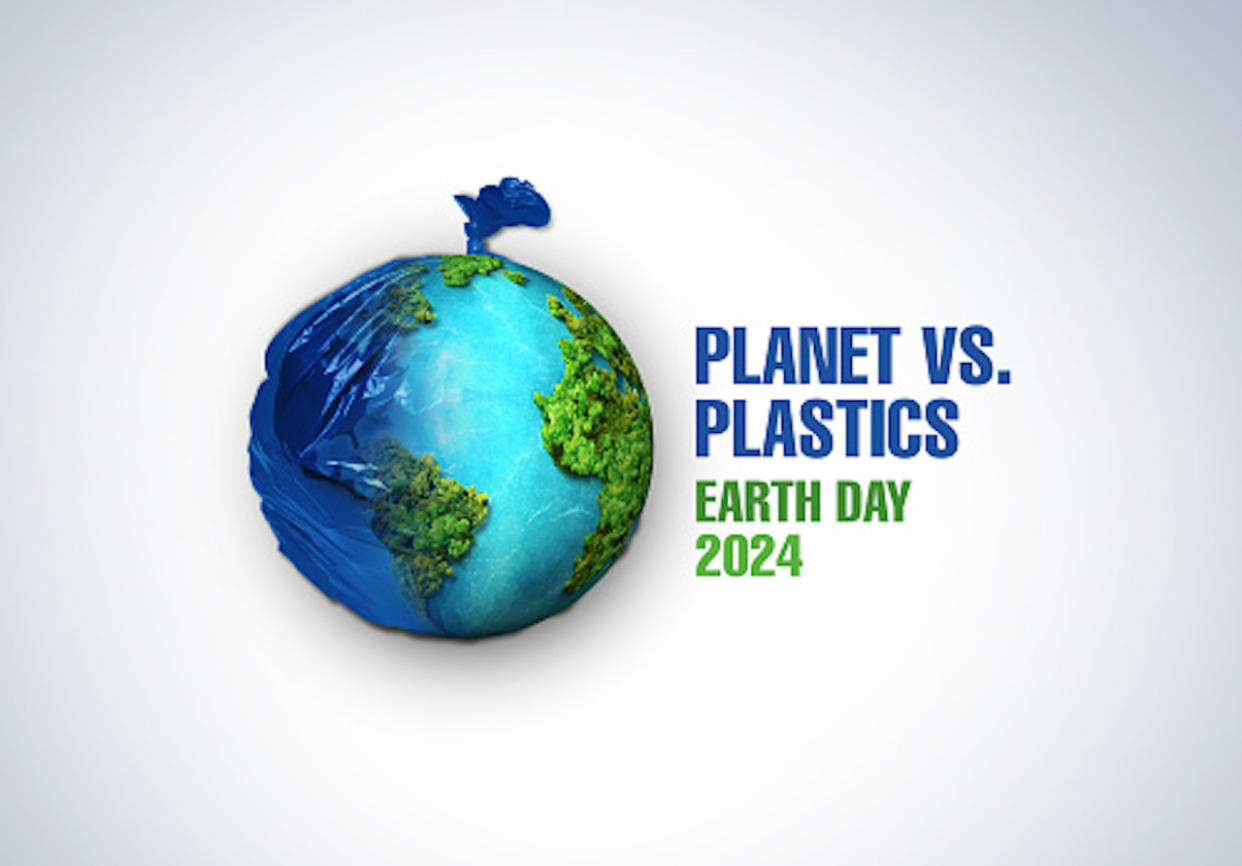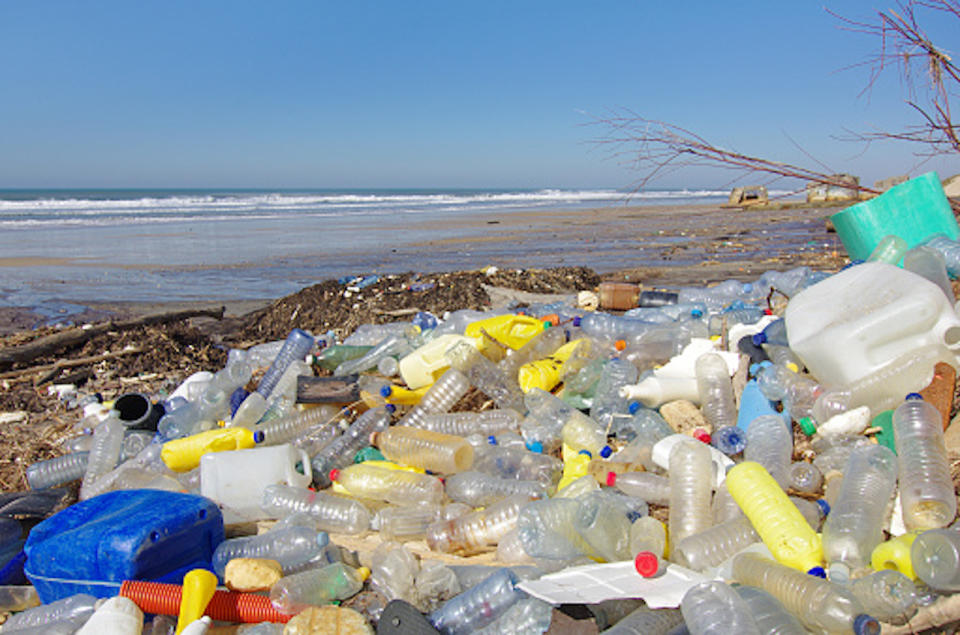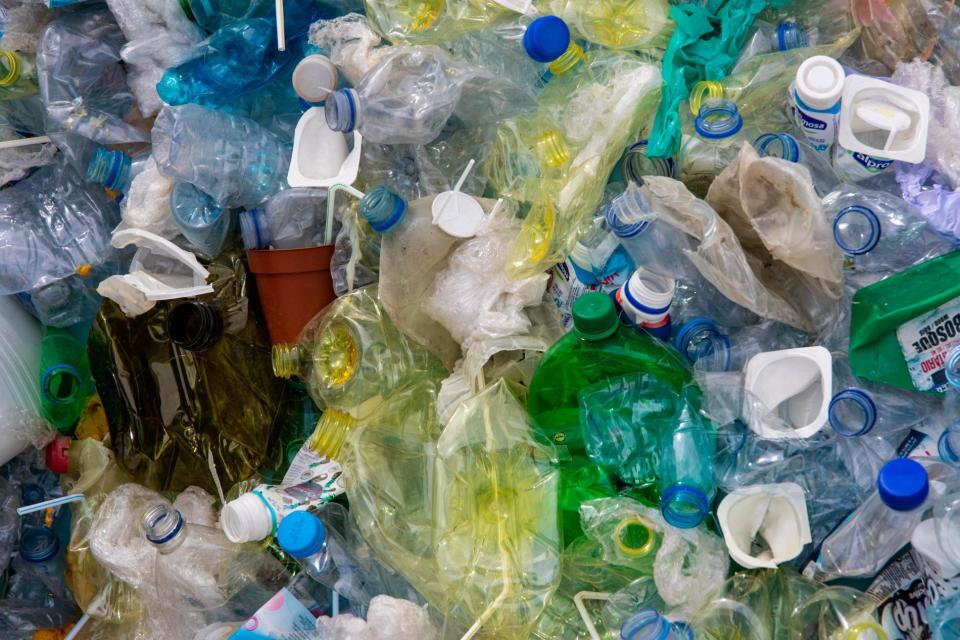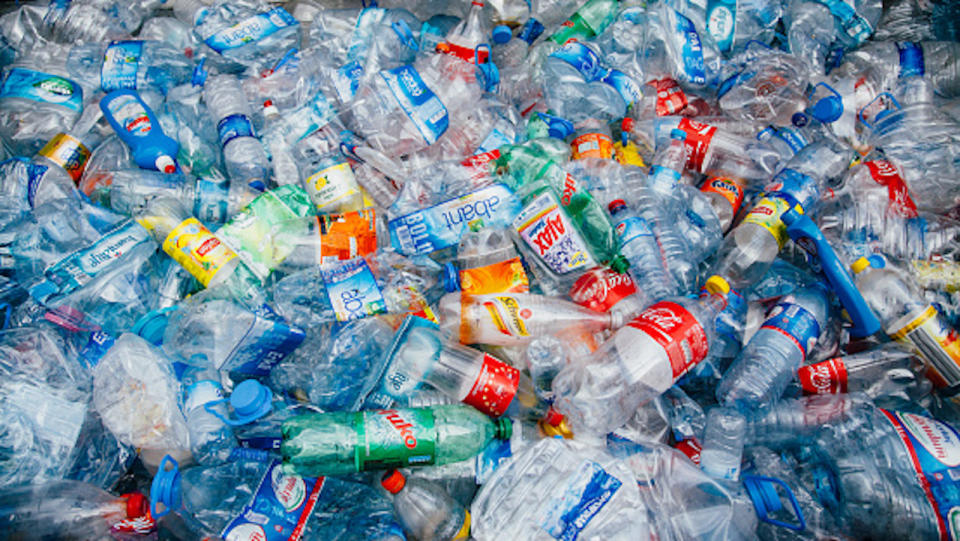Earth Day theme urges action as the planet battles plastic pollution

With plastic being present everywhere on the planet, even showing up in human blood, it's no wonder the Earth Day theme this year is a dire message for immediate action to prevent further damage to our health and the environment.
Hosted by EarthDay.org since 1970, Earth Day is held annually on April 22 as a global initiative to show support for the environment and raise awareness for further action.
SEE ALSO: How plastic pollution is contributing to climate change
The Earth Day 2024 theme is Planet versus Plastics, which calls on everyone –– from individuals, businesses and governments, to churches, unions and non-governmental organizations (NGOs) –– to offer their steadfast pledge to demand an end in plastics, due to the tremendous human and environmental health risks associated with them.
As part of it, EarthDay.org would like to see a 60 per cent drop in plastic manufacturing by 2040 and, eventually, a planet free of it entirely as an ultimate goal. An estimated 400 million tonnes of plastic waste is produced every year.

(Getty Images/Sablin/1091668144-170667a)
“The word environment means what surrounds you. In the case of plastics, we have become the product itself. It flows through our bloodstream, adheres to our internal organs, and carries with it, heavy metals known to cause cancer and disease. Now, this once-thought amazing and useful product has become something else, and our health and that of all other living creatures hangs in the balance,” said Kathleen Rogers, president of EarthDay.org, in a statement on its website to promote Earth Day 2024.
EarthDay.org's list of ideas to obtain a 60 per cent drop in plastic output
The organization has listed the ways the world can achieve a 60 per cent drop in plastic production, including the facilitation of a widespread, public awareness campaign of the harm done to human and biodiversity’s health, and demanding further research be conducted on its health implications. That included the release of "any and all information regarding its effects to the public."

(Magda Ehlers/Pexels)
As well, it wants the rapid phasing out of all single-use plastics by 2030, advocating for a commitment to be agreed upon in a United Nations' treaty on plastic pollution this year.
Another goal calls for policies that eliminate the scourge of fast fashion and the vast amount of plastic it produces and uses.
Lastly, it wants investment in innovative technologies and materials so a plastic-free world can happen.
Countries will convene in Ottawa to discuss in-the-works plastics treaty
The United Nations Environment Programme’s (UNEP) Intergovernmental Negotiating Committee (INC) will be gathering in Ottawa, Ont., this week, from April 23-29, in the fourth session to develop the world's first-ever, legally binding plastics treaty, which proposes to include the marine environment, too.

(Getty Images/Sami Sert/629554844-170667a)
It comes on the heels of the previous global talks on drafting a document, held in November 2023.
Juan José Alava, principal investigator of the Ocean Pollution Research Unit at the University of British Columbia's Institute for the Oceans and Fisheries, is also a member of the Scientists' Coalition for an Effective Plastics Treaty.
WATCH: Ottawa hosts global effort to curb plastic pollution this April
In a written statement provided to The Weather Network, he said the coalition's recommendations include "bold" measures for moving away from non-essential, single-use plastics.
The suggestions also call on the INC to foster integrated assessments of sustainability, safety, essentiality and transparency criteria to reach safe, sustainable production and consumption of plastics. The analysis will require "rigorous, independent, scientific assessments" that draw on the knowledge and expertise of multiple stakeholders, including the scientific community, Indigenous researchers and knowledge holders, among others.
💡 Our scientists have carefully read through the revised draft text ahead of the INC-4 meeting in Ottawa.☝️ Putting our collective expertise together, we developed a response that provides science-based input for negotiators.➡️ Read our response: https://t.co/51YRBKP0j8 pic.twitter.com/hvFAq3swgn
💡 Our scientists have carefully read through the revised draft text ahead of the INC-4 meeting in Ottawa.
☝️ Putting our collective expertise together, we developed a response that provides science-based input for negotiators.
➡️ Read our response: The Scientists' Coalition on Twitter: "💡 Our scientists have carefully read through the revised draft text ahead of the INC-4 meeting in Ottawa.☝️ Putting our collective expertise together, we developed a response that provides science-based input for negotiators.➡️ Read our response: https://t.co/51YRBKP0j8 pic.twitter.com/hvFAq3swgn / Twitter" The Scientists' Coalition on Twitter: "💡 Our scientists have carefully read through the revised draft text ahead of the INC-4 meeting in Ottawa.☝️ Putting our collective expertise together, we developed a response that provides science-based input for negotiators.➡️ Read our response: https://t.co/51YRBKP0j8 pic.twitter.com/hvFAq3swgn / Twitter"— The Scientists' Coalition (@Scientists_Coa) The Scientists' Coalition on Twitter: "💡 Our scientists have carefully read through the revised draft text ahead of the INC-4 meeting in Ottawa.☝️ Putting our collective expertise together, we developed a response that provides science-based input for negotiators.➡️ Read our response: https://t.co/51YRBKP0j8 pic.twitter.com/hvFAq3swgn / Twitter"
"If we don’t have a strong, proactive treaty, plastic pollution will exponentially increase. By 2040, it is estimated that at least 20,000 million metric tonnes of plastics will have been produced. That’s the scientific prediction," said José Alava.
He said mid- or downstream measures are "insufficient," so a reduction of fossil feedstocks extraction and the production, and eventual, elimination of non-essential virgin plastics –– otherwise known as primary plastic polymers (PPP) –– to end plastic pollution is needed.
A fifth and, so far, final session is scheduled to take place in Korea near the end of November 2024. The target is to have a global agreement in place by the end of 2024.
WATCH: How this Canadian company is turning garbage into new products...and money
Thumbnail courtesy of Getty Images/Doers/2096949870-170667a.
Follow Nathan Howes on the X platform, formerly known as Twitter.


